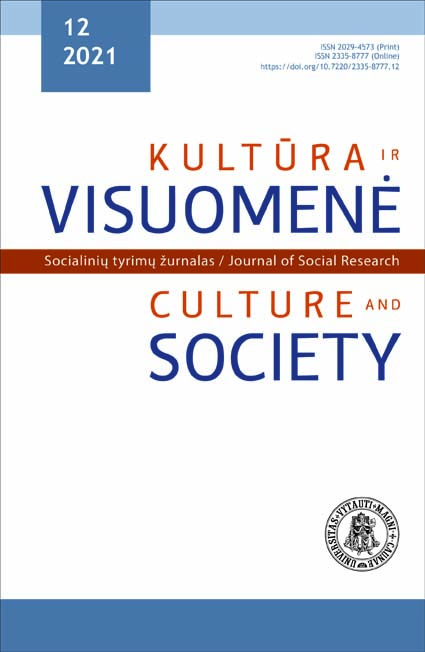Tėčių įsitraukimas į vaikų priežiūrą Lietuvoje: lyčių vaidmenų stagnacija ar egalitarinio požiūrio į lyčių vaidmenis link?
Fathers’ Involvement in Childcare in Lithuania: Stagnation of Gender Roles or a Way towards an Egalitarian Attitude to Gender Equality?
Author(s): Vilma RažauskienėSubject(s): Gender Studies, Education, Family and social welfare
Published by: Vytauto Didžiojo Universitetas
Keywords: Fathers’ involvement; Paternity leave; Maternity leave; Parental leave; Gender equality; Family policy;
Summary/Abstract: Issues regarding gender equality have been addressed for many decades. Time after time, new spheres are being evaluated. One such sphere is unpaid care work that is one of the many variables of today’s gender equality indices. It is important to evaluate the gender gap in unpaid care work in order for men and women to be able to balance their family life as well as their personal life and work (EIGE 2020, 20). Women are the main providers of care for children (especially for children under the age of one) in Lithuania (Norgėlaitė 2020). Although the percentage of fathers taking parental leave has been growing in Lithuania (Brazienė and Vyšniauskienė 2020), it is questionable that this increase is due to essential changes in society (Norgėlaitė 2020). The European Parliament and Council introduced the directive 2019/1158, which sets the objective for all Member States to provide from 2 August 2022 minimum requirements for parental leave, paternity leave and carers’ leave. The directive also entitles second parents to take leave, thus it intends to create an incentive for fathers to take paternity leave and to take on caring responsibilities. The minimum paternity leave would increase to up to two months to fathers in Lithuania, with no possibility of transferring it to mothers and vice versa. The goal of the research is to reveal the opinion of different groups, marked by different characteristics such as gender, age etc., about the EU directive in Lithuania. Based on the results of a survey that was carried out (N 660), it was found that women who do not have children are more favourable to the EU directive than women who have children. Attitude differences between genders or age groups are minor. However, male respondents who have children are more favourable to the EU directive than men who do not have children. Based on the findings of the research a presumption is made that the attitudes of men towards gender equality in the sphere of childcare tend to change faster than those of women. It is also presumed that those women, for whom their social role of a mother is more important, tend to be less willing to accept changes in the sphere of childcare. Recommendations are provided on transferring the objectives of the EU directive to Lithuanian law.
Journal: Kultūra ir visuomenė: socialinių tyrimų žurnalas
- Issue Year: 12/2021
- Issue No: 1
- Page Range: 88-104
- Page Count: 17
- Language: Lithuanian

